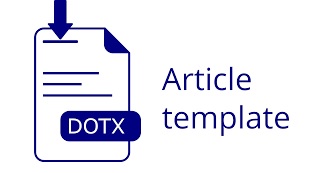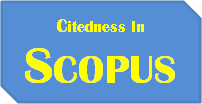Pemberdayaan Masyarakat Melalui Reposisi Masyarakat Dalam Proses Perumusan Penganggaran Di Tingkat Desa (Studi Kasus di Desa Kotayasa dan Banjarsari Wetan, Kecamatan Sumbang, Kabupaten Banyumas)
DOI:
https://doi.org/10.30656/sawala.v7i1.847Keywords:
administrative, empowerment, legal-knowledge, policy formulation, socio-psychologicalAbstract
So far, policy formulation almost carried out by the elite, even formally the elite has the authority while the community does not. This mechanism conceptualized in the form of formulation models, such as institutional, rational and even incremental models, and especially the elite-mass model. The position of the community directly is generally relatively weak or even almost non-existent. Initiation to involve more community roles in policy formulation has carried out as much as in deliberative and participatory models, but still, the involvement of the community becomes an object, not the subject of policy formulation. This elitist model of policy formulation, especially in Indonesia, occurs both at the national, provincial and district/city levels, the latter at the village level. By these facts, it is interesting to know the potential or prospects of the community, especially at the village level, to be the subject of policy formulation at the village level. This study uses an experimental approach with the treatment of enhancing their understanding and awareness about the formulation of budgeting policies or empowerment in legal, administrative and socio-psychological aspects. This study focuses on the process of formulating village income and expenditure budgets in two villages in Sumbang District, Banyumas Regency. Methods of collecting data using focus group discussions and in-depth interviews with informants selected purposively and questionnaire methods for respondents who chosen accidentally, while analyzing data using interactive. The results of the study show the very high potential and prospects of the community to become an important part and subject to the process of the budgeting policy formulation.
References
Arnstein, Sherry R., (1969), A Ladder of Citizen Participation, on Journal of the American Planning Association, Vol. 35, No. 4, July 1969, pp. 216-224.
Chirenje, Leonard I., Richard A. Giliba and Emmanuel B. Musamba, (2013), Local communities’ participation in decision-making processes through planning and budgeting in African countries, on Chinese Journal of Population Resources and Environment, Vol. 11 No. 1. Doi: doi.org/10.1080/10042857.2013.777198
Fetterman, David M. and Abraham Wandersman, (2005), Empowerment Evaluation Principles in Practice, The Guilford Press, New York.
Gordon, Victoria, Jeffery L. Osgood Jr., and Daniel Boden, (2017), The Role of Citizen Participation and the Use of Social Media Platforms in the Participatory Budgeting Process, on International Journal of Public Administration, Vol. 40 No. 1. Doi: doi.org/10.1080/01900692.2015.1072215
Jacobs, Keith, (2001), Devolved Budget Making within Local Authority Housing Departments: Staff Perceptions of Power and Control, on Local Government Studies, Vol.27, No.2 (Summer 2001), pp.93–110.
Lewis, Carol W., How to Read a Local Budget and Assess Government Performance, on Anwar Shah (Ed.), (2007), Local Budgeting (Public Sector Governance And Accountability Series), The International Bank for Reconstruction and Development/The World Bank.
Liao, Yuguo and Yahong Zhang, (2012), Citizen Participation in Local Budgeting: Mechanisms, Political Support, and City Manager’s Moderating Role, on International Review of Public Administration, Vol. 17 No. 2. Doi: doi.org/10.1080/12294659.2012.10805226.
Lim, Seunghoo and Youngmin Oh, (2016), Online Versus Offline Participation: Has the Democratic Potential of the Internet Been Realized? Analysis of a Participatory Budgeting System in Korea, on Public Performance & Management Review, Vol. 39 No. 3. pp. 676-700.
Doi: doi.org/10.1080/15309576.2016.1146553
Lipsky, Michael, (1980), Street-Level Bureaucracy: Dilemmas of the Individual in Public Services, the Russell Sage Foundation, New York City.
Lorsuwannarat, Tippawan, (2017), Public Participation in Budgeting: The New Path of Budget Reform in Thailand, on International Journal of Public Administration, Vol. 40, No. 5, (p. 385-400). Doi: doi.org/10.1080/01900692.2015.1126730.
Mbambo, William Bongile, D.R. Thakhathi and Akeem Adewale Oyelana, (2016), The Importance of Community Participation in the Budgetary Process in the Eastern Cape of South Africa, on Journal of Social Sciences, Vol. 49 No. 3-2. https://doi.org/10.1080/09718923.2016.11893623.
Miles, Matthew B., A. Michael Huberman, and Johnny Saldana, (2014), Qualitative Data Analysis: A Methods Sourcebook, 3rd edt., Sage, Los Angeles.
Sukarso, Swastha Dharma, dan Niken Paramarti Dasuki (2017), Community Participation on Village Budgeting In Local Government of Indonesia: A Case Study in Banyumas District, Central Java, Proceeding International Seminar: Reconstructing Public Administration Reform To Build World Class Government, Lembaga Administrasi Negara, Jakarta, 21-22 Agustus 2017 (390-399).
Sukarso, Swastha Dharma, Niken Paramarti Dasuki, (2018), Model Pemberdayaan Masyarakat Dalam Pembangunan: Studi Kasus Dalam Perumusan APBDes Di Desa Kotayasa dan Banjarsari Kulon, Kecamatan Sumbang, Kabupaten Banyumas, dalam Edi Santoso, ed. (2018), Pemberdayaan Masyarakat: Perspektif Komunikasi, Organisasi, Budaya, dan Politik, Yayasan Literasi Bangsa dan Fisip Unsoed.








